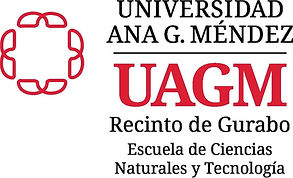

SEA-PHAGES Research Program
This project spans two semesters and involves collaborative research with the University of Pittsburgh, focusing on the discovery of bacteriophages. Bacteriophages are viruses responsible for bacterium phagocytosis. The first semester was entirely laboratory-based and comprised distinct phases. We initiated by collecting a soil sample to determine the presence of bacteriophages in a direct sample (debris and bacteriophage separation) and an enriched sample, which involved dilution in series. Confirmation was achieved through spot titration and full-pot titration. Subsequently, we selected a plate to work with, assigned it a name (mine was called Agente005), and conducted a lysate from a purified sample. This lysate was then used in a webbed plate, where a buffer was added to amplify the bacteriophage for DNA extraction.
The DNA extraction process commenced by eliminating bacterial DNA and RNA from the lysate using nucleases. Subsequently, the phage DNA was released from the phage capsid. Following this, the DNA was attached to a solid matrix based on its chemical properties. After rinsing and elution, a sample of pure phage DNA was obtained.
The second semester was focused on bioinformatics. Upon receiving the bacteriophage DNA sequence, we utilized databases and specific programs to determine, compare, and assign the functions of each part of the chains. This involved identifying whether it was a START or STOP enzyme, its orientation, and other relevant factors."




Stony Coral Tissue Loss Disease (SCTLD)


Microfragmentation: An alternative to coral reef restoration
If you're curious about the type of research I'm conducting outside of the veterinary field, I'd be happy to share some details with you. My work involves using a specialized software called the Coral Point Count Program to measure the surface area of each coral micro-fragment under study. This program allows me to obtain accurate and reliable data that I can use to the health and growth patterns of the coral. In addition to measuring the surface area, I also assess whether the coral has been subjected to predation or if it has succumbed to stony coral tissue loss disease. These are two common threats that can affect the health and survival of coral reefs, and it's important to monitor them closely. To ensure the accuracy of my results, I also have experience running quality control tests on water using specialized IDEXX equipment. This equipment allows me to detect any potential contaminants or irregularities in the water that could affect the coral's health. Overall, my research is focused on understanding the complex ecosystem of coral reefs and identifying ways to protect and preserve them for future generations.

Gallery









